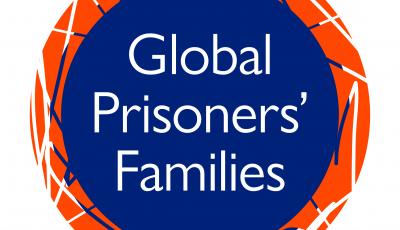The rights of children and young people as family members of prisoners and as prisoners with family members
Posted:
Time to read:
Families Outside are a national charity in Scotland working on behalf of families of prisoners. Their annual conference this year on the topic, “Health, Human Rights and Hope” had speakers from NHS National Services Scotland, Children of Prisoners Europe (COPE), the Scottish Prison Service and third sector organisations alongside a panel of family members who shared their own experiences.
Rachel Brett of COPE began by reminding us that everyone has the right to respect for a family life under Article 8 of the ECHR, that children in particular have the right to maintain personal relations and have direct contact on a regular basis with a parent they are separated from under Article 9 of the UNCRC. These rights of contact have been well-established in case law. While there has been an increased recognition of children’s rights with regard to visiting parents in prison, Covid 19 has impacted on the realisation of these rights. While all European countries stopped face to face visits at the start of the pandemic, not all continued with this suspension for as long as the UK. Despite a few months of face to face visits in the later summer and autumn they are once again suspended, including all prisons within areas placed in tiers 3 and 4 in Scotland, many in tier 3 in England, and in areas with specific local restrictions in Wales. Given the plan to ease restrictions in the UK over the Christmas period, and the anticipated third wave and tighter restrictions expected to follow, there is likely to be continued disruption to children’s right to family life through face to face contact with their parent in prison.
Moving on to the situation of children who are themselves in prison, Nina Vaswani from the Children and Young People’s Centre for Justice (CYCJ) reminded us that children’s rights apply to all children. So often rights are tied to responsibilities, resulting in a diminishing of rights for those whose behaviour and causing of harm can be deemed to render them less deserving of these rights. Sometimes, raising the issue of these rights for this group of children and young people can be easier, or more palatable, than where the children and young people involved are themselves the ones in conflict with the law. Children and young people held within a prison or secure setting have the same right to family life and contact with parents, as all children. Additionally, Article 37 of the UNCRC provides them with a right to maintain contact with family through correspondence and visits. In the current Covid 19 restrictions this group of children, similar to the adult prison population, have been, and still are, experiencing a restricted prison regime – spending 23 hours a day locked up, with no or limited access to education, outside space and the opportunity to exercise, and no face-to-face contact with family. Their right to family life, and right to contact with parents is being breached, and has been for almost nine months. Again, given current plans within the UK, this could potentially continue for some time.
As researchers and practitioners we often focus on the (generally female) partners of (male) prisoners and their (often younger) children. This can mean that children and young people serving a sentence themselves, whether in a secure unit, secure training centre or young offenders institution, and their family members, can be forgotten. The children and young people we see are only ever outside of the prison. Where the children and young people are the family members of those in prison, their rights are not always recognised as just that, a right, and instead they can be framed as a privilege for the person in prison, for example through the Incentives and Earned Privilege Scheme in England and Wales.
My own research highlights that while the term “family” within these rights provisions is intended to cover a wide range of set-ups, in reality children can be given that status by prisons as a result of their age and relationship to the person in prison (i.e. they are under 18 and the child of the person in prison). This can result in, for example, children and young people with a sibling in prison feeling excluded and forgotten. While there are positive moves in relation to children’s rights, particularly in Scotland through the government’s plan to incorporate the UNCRC, it is already recognised that ensuring participation for all, including seldom heard groups, can be difficult. It is essential that we do not leave behind or overlook children and young people with family members in prison, or who are in conflict with the law themselves, as we move forward. Particularly in the current climate of Covid 19 restrictions it is key we remember, as John Scott QC pointed out at the conference, that the test of interfering with these rights is necessity not convenience, and act accordingly.
This, amongst other things, means placing children and young people at the centre of the decision-making taking place during these times of restrictions, and truly recognising, rather than simply paying lip service to the notion, that families can mean different things to different people – children and young people can fill a number of familial roles, not just someone’s child, and all have rights. Finally, while this blog focuses on children and young people, not all people in prison are, or have, children. While the focus on children’s rights is a start, we also need to widen this out to be conscious of the rights of all family members, with the research that we do as well as within policy and practice
Share:

